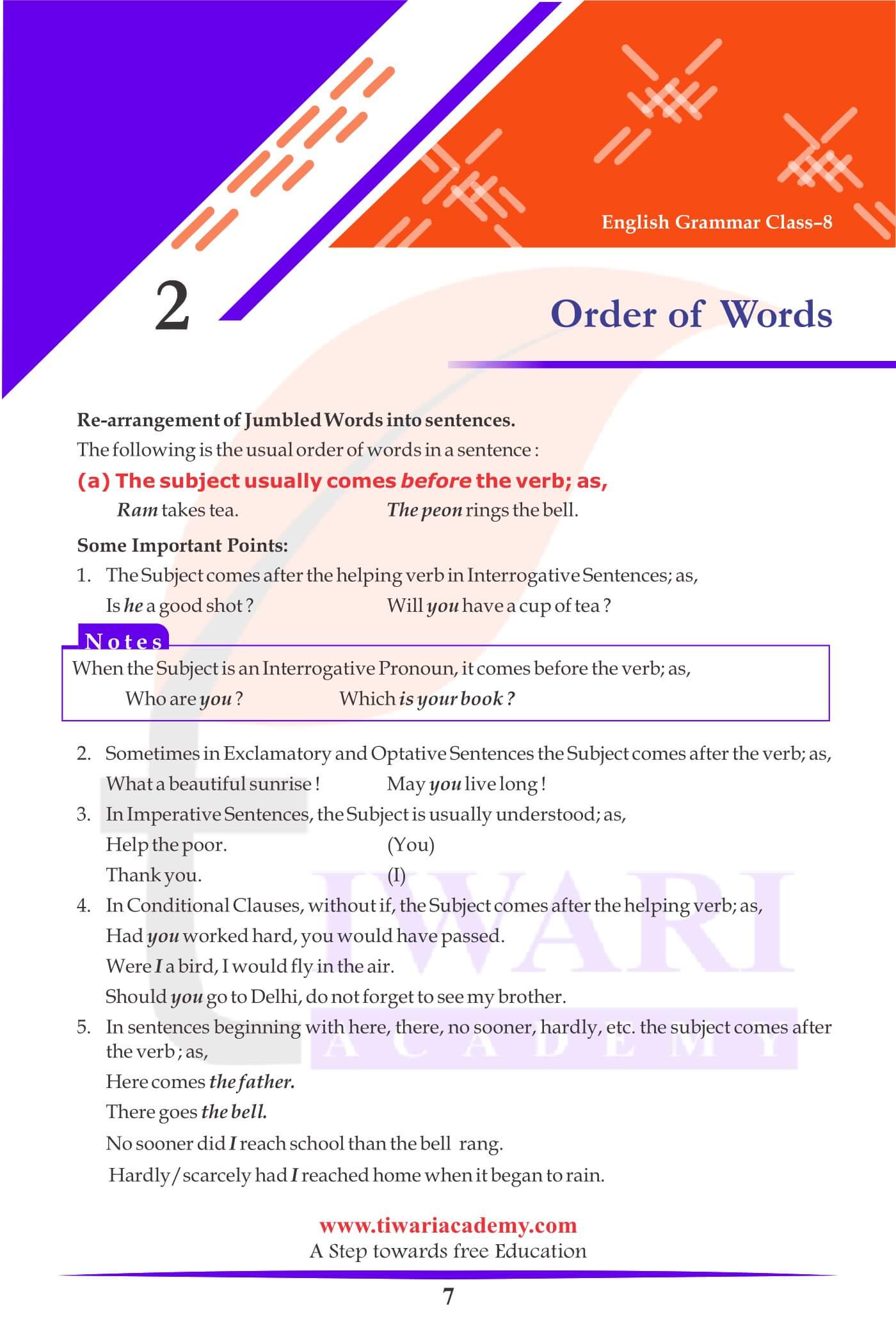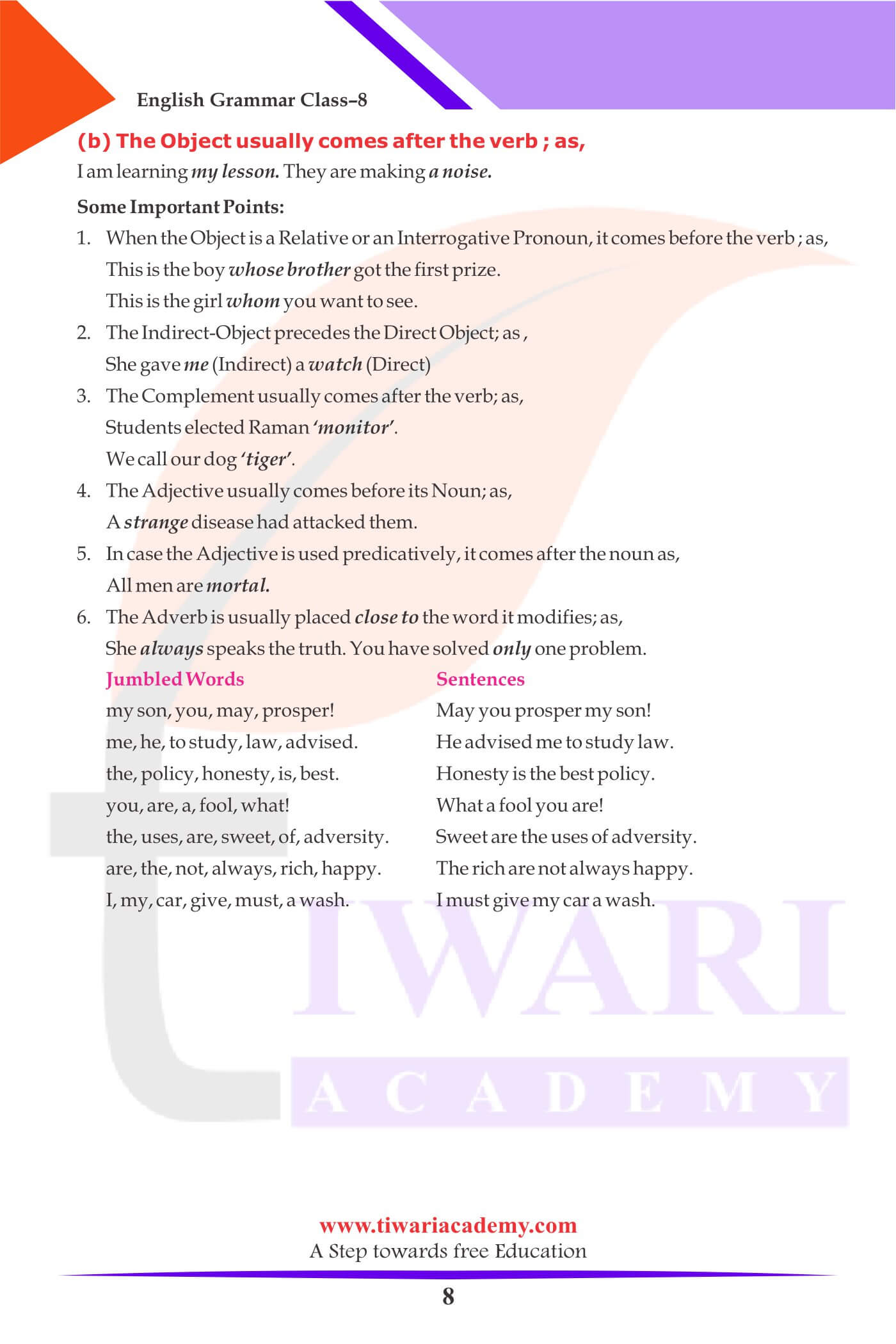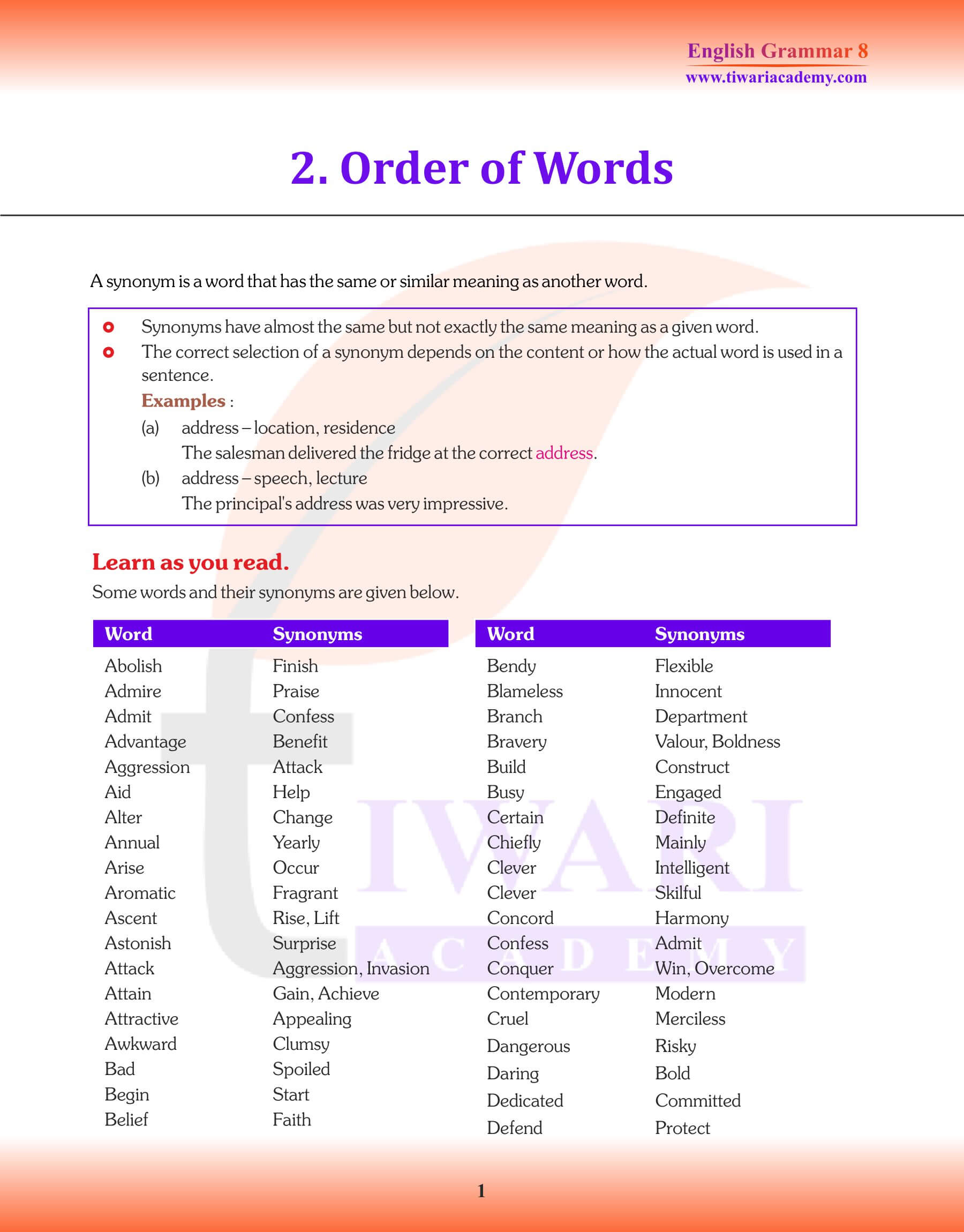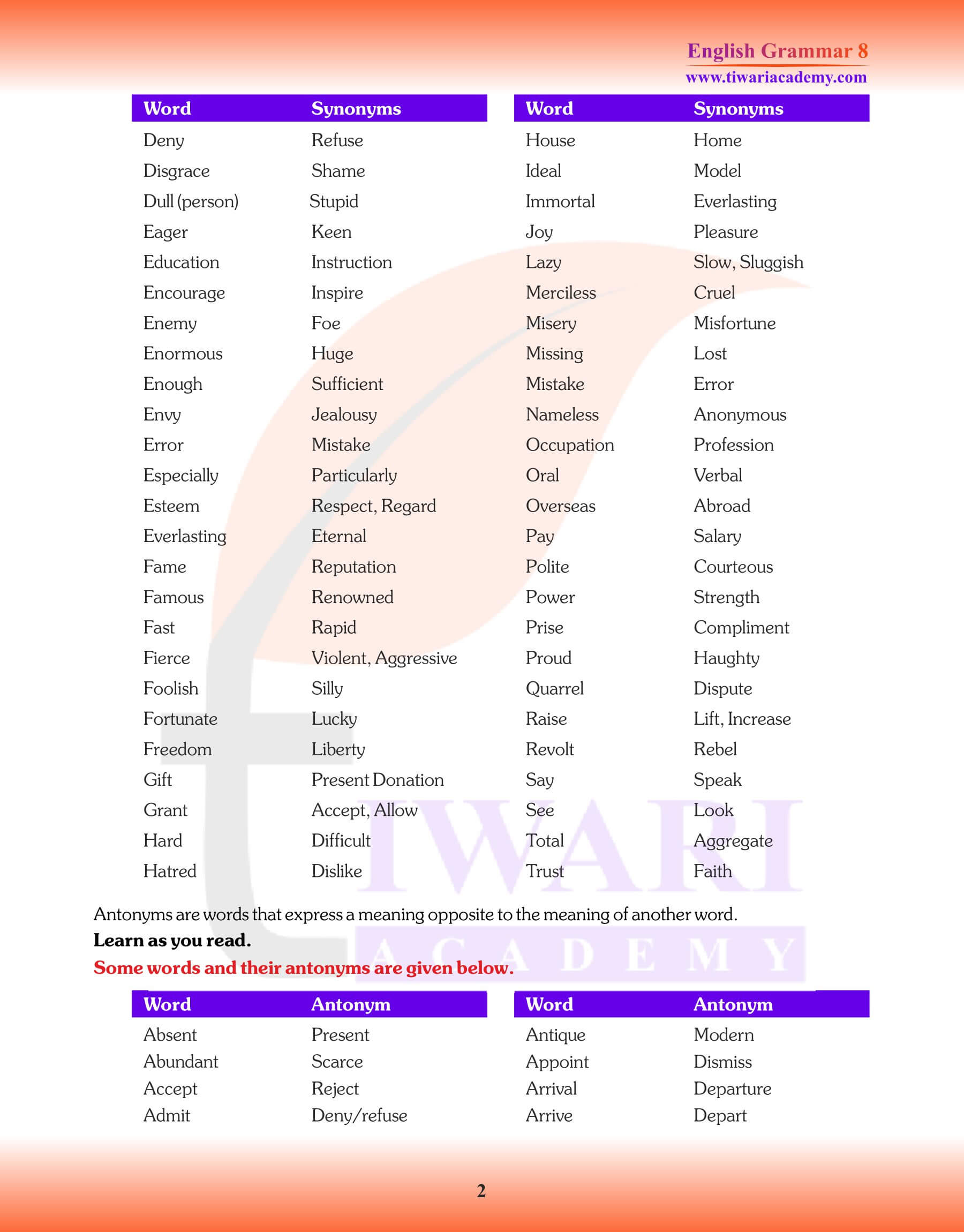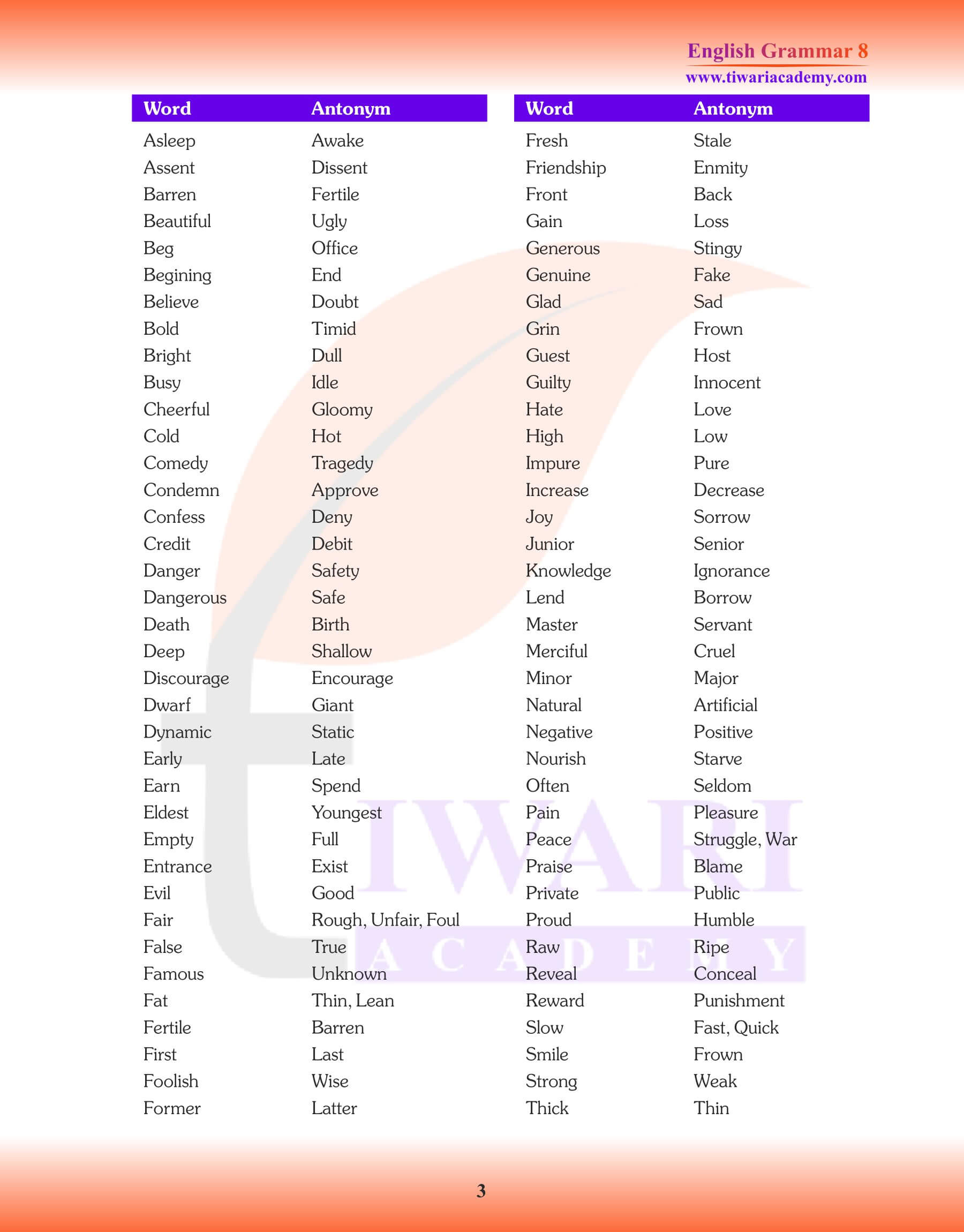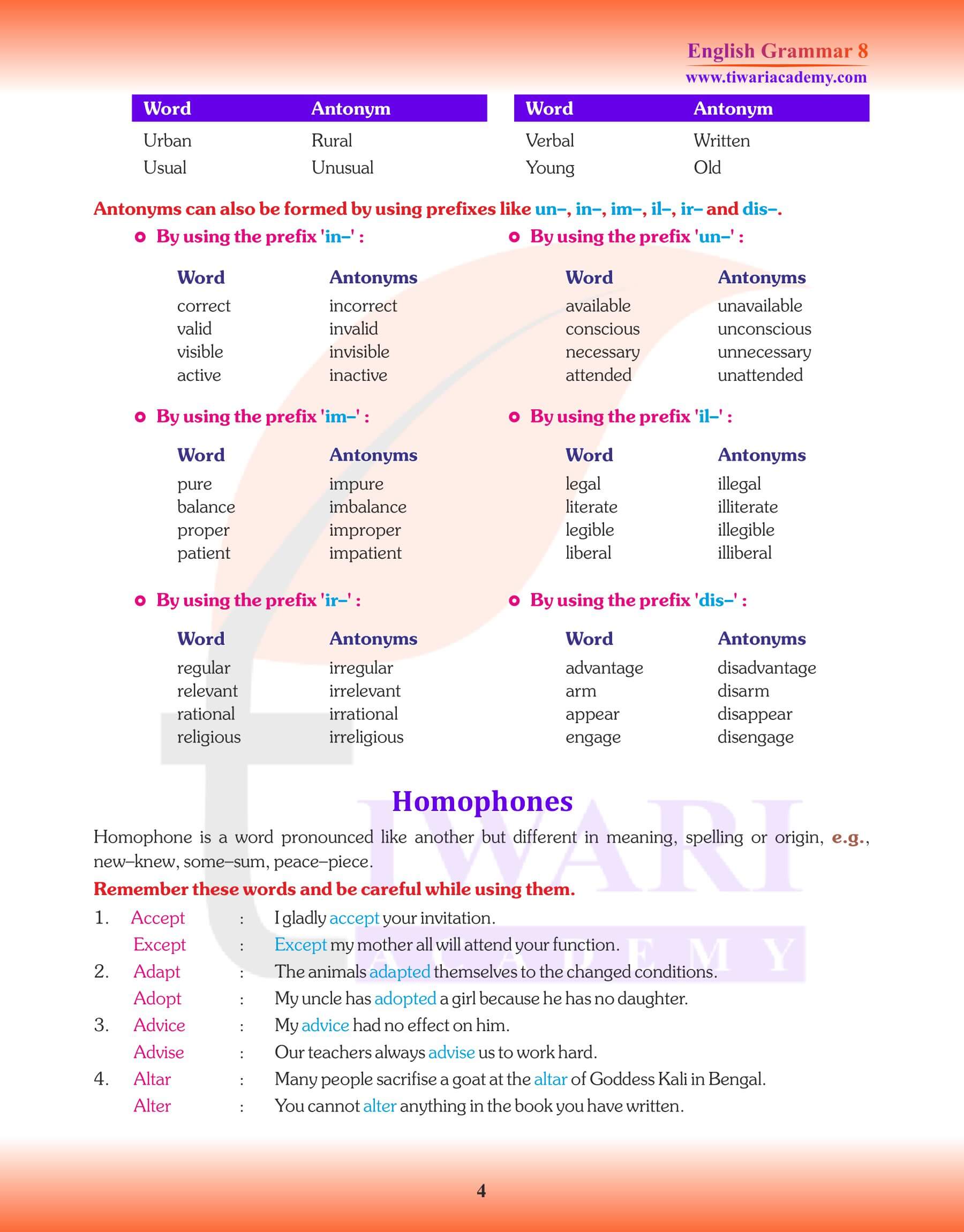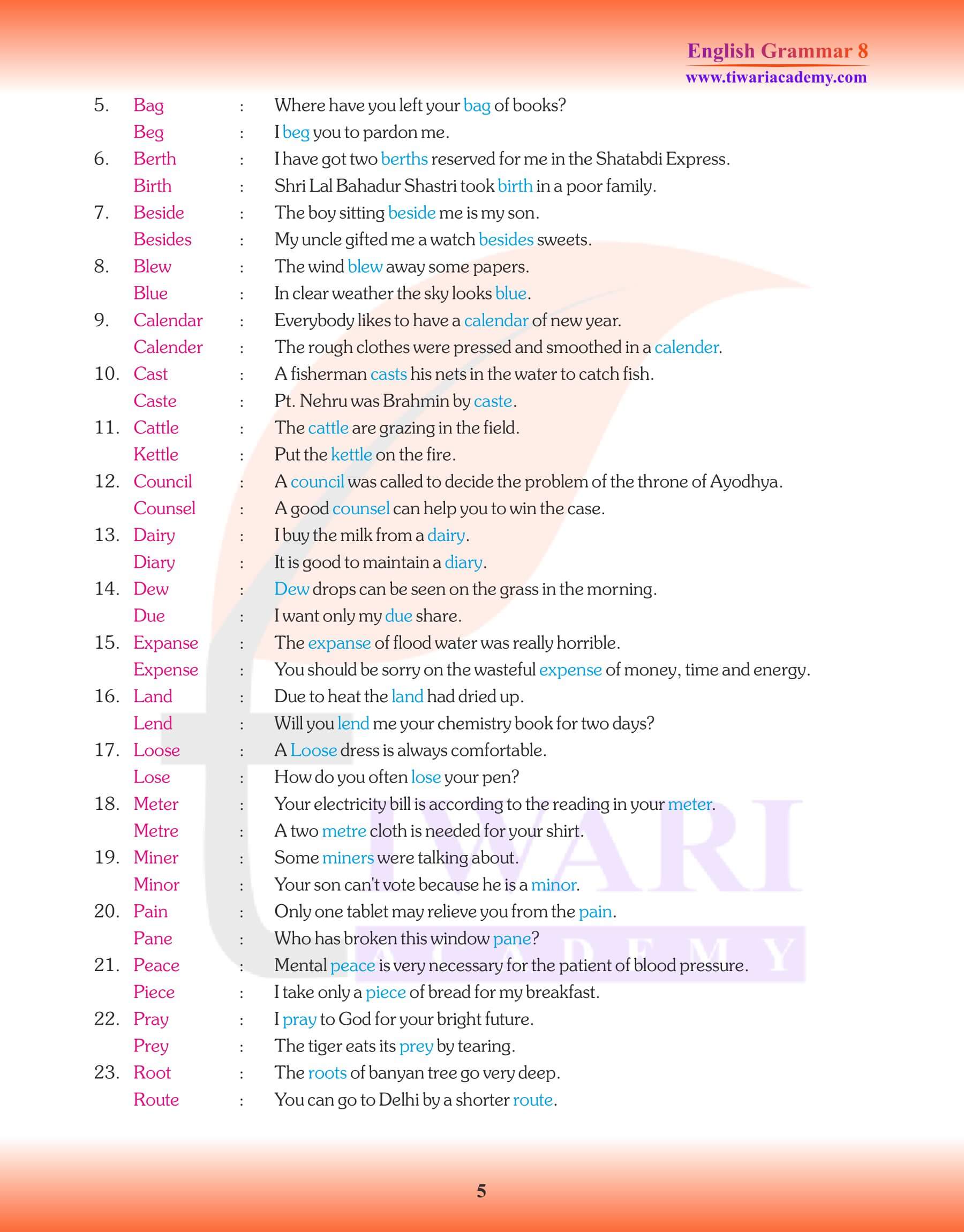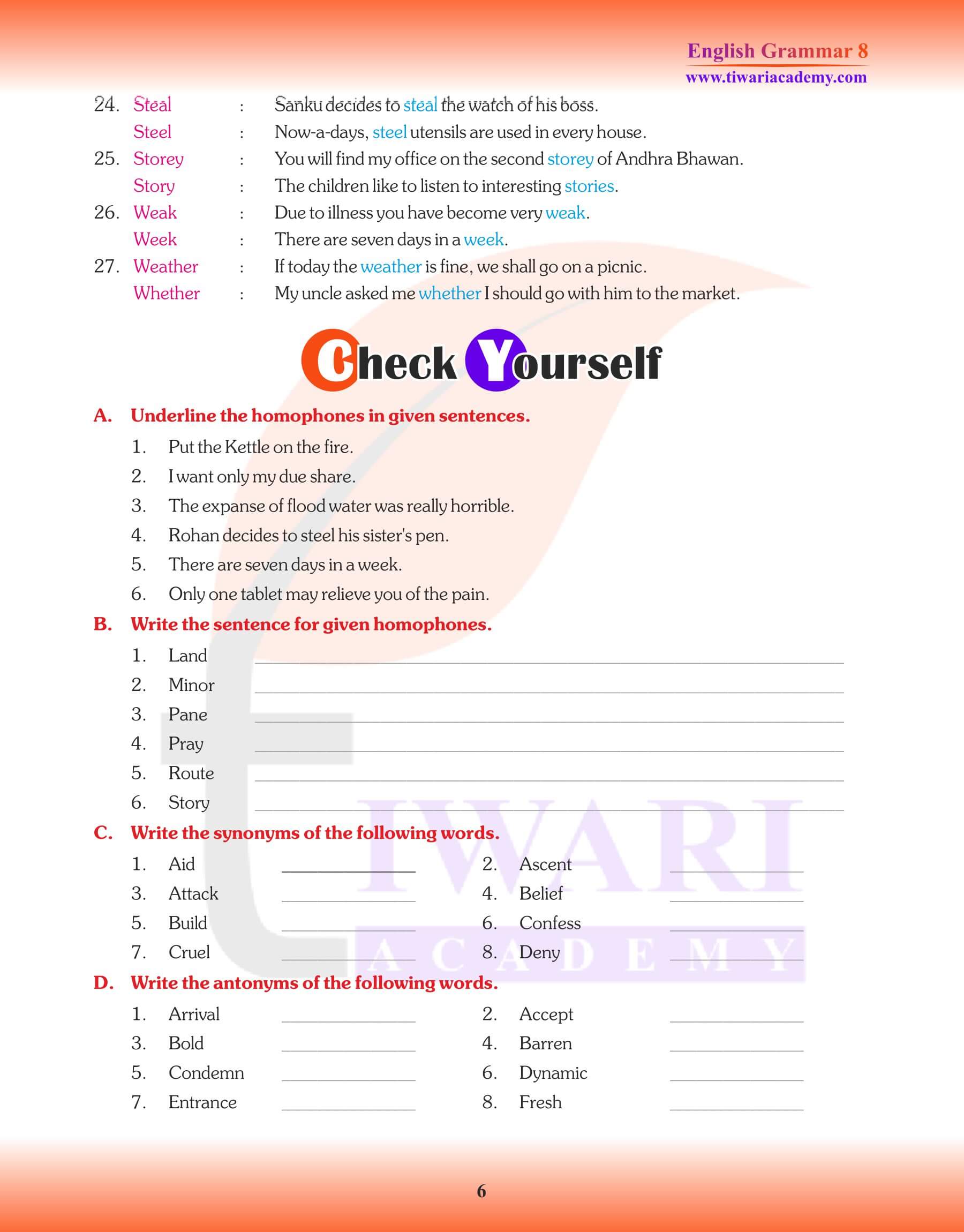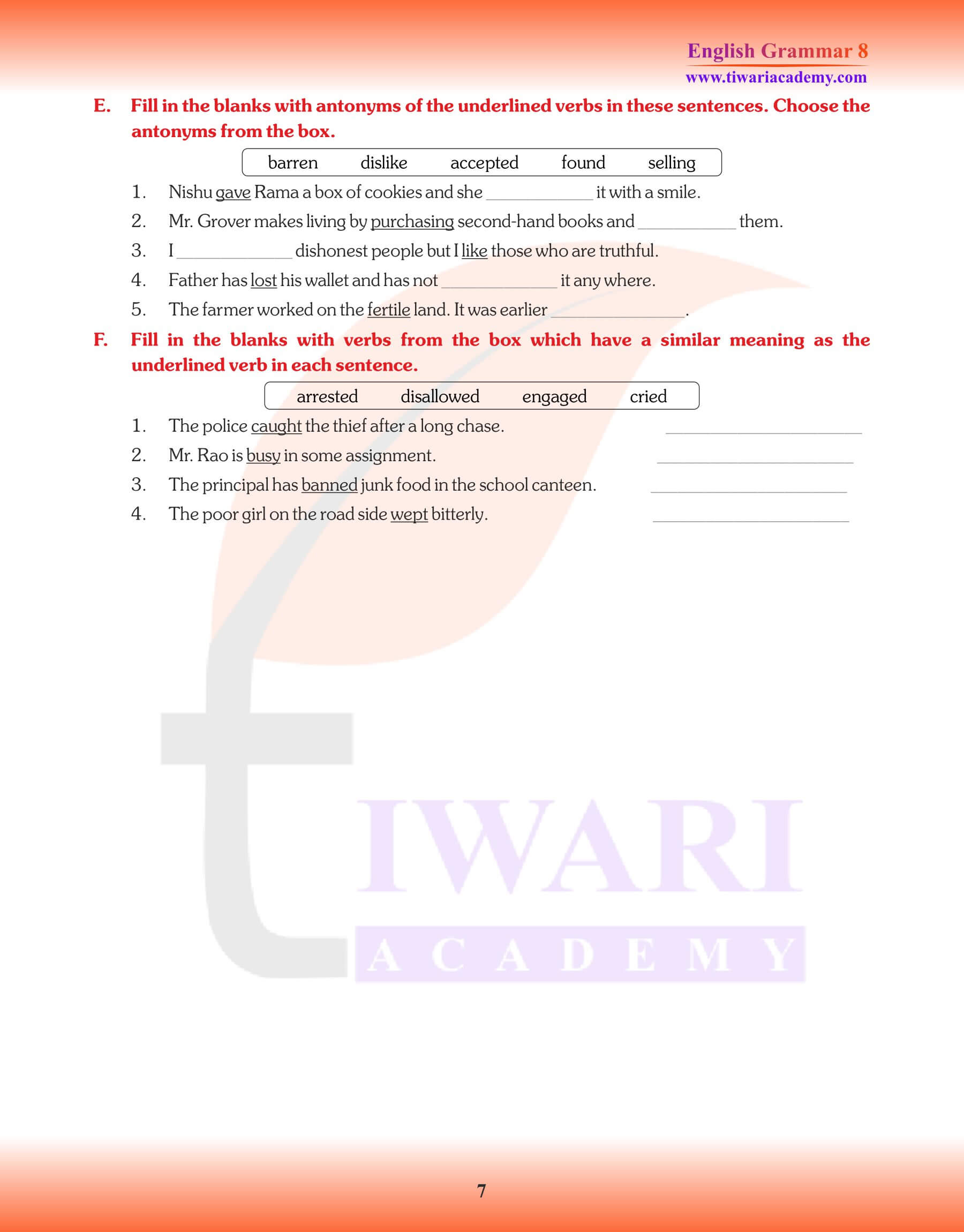Class 8 English Grammar Chapter 2 Order of Words. Re-arrangement of Jumbled Words into sentences. Examples and explanation of different type sentences. The subject usually comes before the verb. For example, Ram takes tea or the peon rings the bell. The Subject comes after the helping verb in Interrogative Sentences. For example, is he a good shot? or Will you have a cup of tea? When the Subject is an Interrogative Pronoun, it comes before the verb. Who are you? Which is your book?
Class 8 English Grammar introduces students to the intricate world of word order, a topic elaborated upon in Chapter 2, aptly titled Order of Words. The chapter unravels the mystique of sentence structure, offering valuable insights into the arrangement of words. By mastering this, students can transform jumbled word sequences into coherent and meaningful sentences.
One of the chapter’s highlights is the exploration of various sentence types, each with its unique set of rules and structures. The lessons, replete with examples, ensure that students grasp the nuances of these different formations. A central principle in English grammar is the positioning of the subject and verb. Typically, the subject precedes the verb. Illustrations like “Ram takes tea” and “The peon rings the bell” solidify this standard structure, making it more digestible for learners.
| Class: 8 | English Grammar |
| Chapter: 2 | Order of Words |
| Academic Session: | 2025-26 |
| Study Material: | Course Book and Revision Notes |
How to use Subject and Verbs
1. Sometimes in Exclamatory and Optative Sentences the Subject comes after the verb as,
(a) What a beautiful sunrise!
(b) May you live long!
2. In Imperative Sentences, the Subject is usually understood as,
(a) Help the poor. (You)
(b) Thank you. (I)
3. In Conditional Clauses, without if, the Subject comes after the helping verb as,
(a) Had you worked hard, you would have passed.
(b) Were I a bird, I would fly in the air.
(c) Should you go to Delhi, do not forget to see my brother.
4. In sentences beginning with here, there, no sooner, hardly, etc. the subject comes after the verb as,
(a) Here comes the father.
(b) There goes the bell.
(c) No sooner did I reach school than the bell rang.
(d) Hardly/scarcely had I reached home when it began to rain.
| Jumbled Words | Sentences |
|---|---|
| my son, you, may, prosper! | May you prosper my son! |
| me, he, to study, law, advised. | He advised me to study law. |
| the, policy, honesty, is, best. | Honesty is the best policy. |
| you, are, a, fool, what! | What a fool you are! |
| the, uses, are, sweet, of, adversity. | Sweet are the uses of adversity. |
However, as students delve deeper, they’ll discover exceptions to this rule, especially within interrogative sentences. Here, the subject often trails the helping verb, leading to formations such as “Is he a good shot?” or “Will you have a cup of tea?” Such variations underscore the dynamic nature of English grammar and the importance of understanding context.
Another intriguing facet is when the subject itself is an interrogative pronoun. In such scenarios, it takes precedence, situating itself before the verb. Examples like “Who are you?” and “Which is your book?” serve as clear demonstrations of this concept.
Some Important Points
- When the Object is a Relative or an Interrogative Pronoun, it comes before the verb as,
(a) This is the boy whose brother got the first prize.
(b) This is the girl whom you want to see. - The Indirect-Object precedes the Direct Object as,
(a) She gave me (Indirect) a watch (Direct) - The Complement usually comes after the verb as,
(a) Students elected Raman “monitor”.
(b) We call our dog “tiger”. - The Adjective usually comes before its Noun as,
(a) A strange disease had attacked them.
Educational platforms, including renowned ones like Tiwari Academy, emphasize the importance of the ‘Order of Words’ in their curriculum. Their resources, enriched with exercises and NCERT Solutions, guide students through the maze of English sentence structures. It’s essential for learners to be equipped with this knowledge, as it not only aids in constructing accurate sentences but also in decoding complex texts they might encounter.
In conclusion, Class 8’s exploration into the Order of Words is a significant step in a student’s linguistic journey. By mastering this chapter, they pave the way for more advanced studies, ensuring a robust foundation in English grammar.
In case the Adjective is used predicatively, it comes after the noun as,
(a) All men are mortal.
The Adverb is usually placed close to the word it modifies; as,
(a) She always speaks the truth.
(b) You have solved only one problem.
